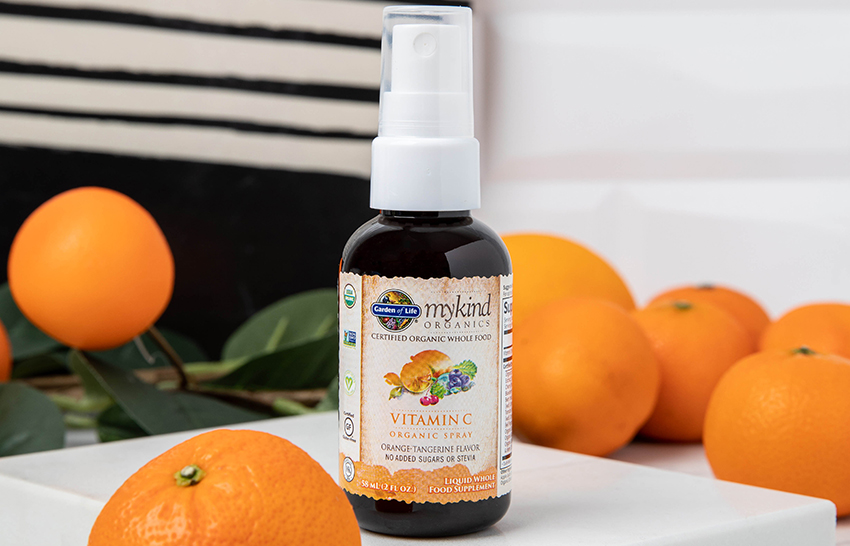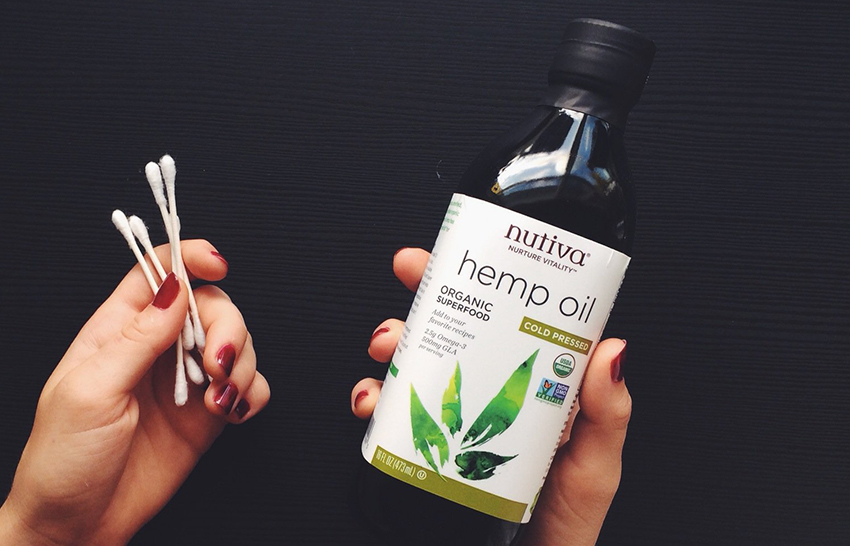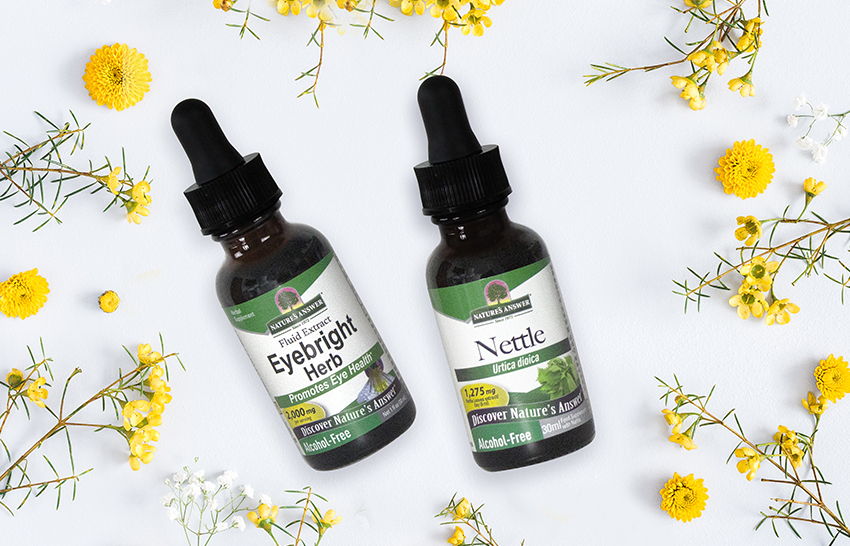By Isabelle N., Head Nutritionist
As nature comes alive it is delightful to see the trees in glorious blossom signalling that Spring (and sunshine) is finally here. However, if you are one of the 25% of adults in the UK affected by Hay Fever, this also signals the start of the allergy season. Otherwise known as Allergic Rhinitis, common symptoms include itchy or irritated eyes, sneezing, headaches, congestion, catarrh and coughing. Symptoms can have a considerably negative impact on quality of life, mood and energy levels. Individuals with pollen allergy triggered asthma may experience wheeziness, chest tightness and shortness of breath.
Read on for our in-house nutritionist top tips for preventing and combating hay fever symptoms*:

How can we reduce our pollen exposure?
· Apply Vaseline as a barrier on the edge of each nostril to trap pollen particles
· Wash your hair before bedtime as pollen tends to stick on hair
· Wear sunglasses outdoors - preferably wrap-around sunglasses
· Sleep with your bedroom windows closed at night
· Dry your laundry indoors rather than outside to prevent pollen attaching to wet clothes
· Enjoy vacations by the coast instead of the countryside to reduce holiday exposure
· Be aware that pollen counts are at their highest early morning and evening
· Check pollen forecasts to plan ahead
Why it is important to balance your natural immune responses?
An allergy is an overactive immune response where inflammatory compounds are released in the body. The rise in incidence of allergies in recent years may be partly due to the increase of life stressors, poor diet, air pollution and nutritional deficiencies. Maintaining a balanced immune system is key to help prevent and reduce occurrences. Vitamin C is vitally important in contributing to a healthy well-balanced immune function. Include foods in your diet that contain an abundance of Vitamin C and ‘antioxidant’ nutrients such as fruit and brightly coloured vegetables.

1. Boost levels of Vitamin C with Garden of Life mykind Organics Vitamin C spray
A convenient wholefood Vitamin C spray that is suitable for the family from the age of 4 years old and delivers Vitamin C derived from over 20 organic fruits, vegetables and herbs. Each serving provides 75% of your recommended intake in the most natural form that is easily absorbed and recognised by the body.

2. Adopt an ‘Anti-Inflammatory’ diet
High in ‘antioxidants’ from brightly coloured vegetables and low in refined sugars and processed foods. Garlic and onions are excellent sources of quercetin- according to recent studies this natural bioflavonoid may help regulate histamine production. A ‘Mediterranean type diet’ is typically rich in Omega-3 essential fatty acids found in oily fish and cold pressed oils. Research suggests a diet rich in these ‘good’ fats may help to maintain healthy inflammatory responses. Try adding Nutiva Organic Hempseed Oil to your meals.

3. Soothe with Chamomile
Herbalists have used Chamomile in a traditional way to gently soothe symptoms of rhinitis and inflammatory responses related to hay fever. Chamomile may help support a sense of calm and overall wellbeing. Super-concentrated, Nature's Answer Chamomile Flowers is a pure, potent liquid extract ideal for efficient absorption.
4. Keep Hydrated
To keep up hydration levels, drink plenty of filtered water throughout the day. Drink fresh nettle tea or try Nature’s Answer Nettle Leaf Liquid Extract for a more concentrated dose! Rich in minerals, Nettle is considered a ‘Spring tonic’ and contains natural plant compounds thought to help the inflammatory processes involved with hay fever.
5. Reishi to the Rescue?
One of the most researched mushrooms in the world, Reishi mushrooms are commonly referred to as the ‘King of Tonic herbs.’ Rich in triterpenes and beta-glucans, studies suggest that these natural compounds may help support and balance the immune system and therefore potentially reduce the body’s immune reaction associated with seasonal allergies*.
OM Mushroom Reishi provides a versatile, full spectrum, certified organic and non-GMO powder.
6. Irritated Eyes?
As the name suggests, Eyebright herb is best known for its traditional use for symptoms of the eyes- such as irritation experienced with Hay Fever. Nature’s Answer Eyebright is a concentrated liquid extract that can be taken internally for targeted herbal support.
*Any claims in this article are not intended to diagnose, prevent, treat or cure any diseases. A food supplement is not a substitute for a healthy balanced diet and lifestyle.







